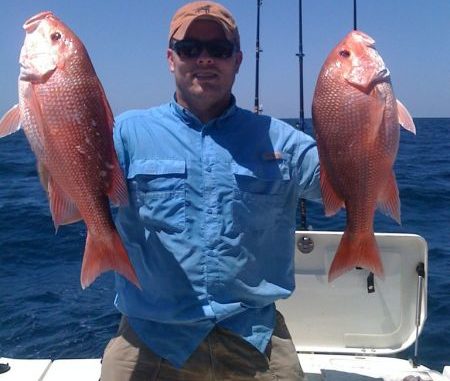
All other Gulf states say lack of federal funding for red snapper plan not an issue
Louisiana currently stands alone as the only Gulf state indicating it would be unable to afford to oversee red snapper management if oversight authority of the fishery is ultimately stripped away from the federal government.
In interviews with LouisianaSportsman.com, marine fisheries representatives from the other four Gulf states have confirmed they are still supporting H.R. 3094 from Baton Rouge Congressman Garret Graves and had no reservations about moving forward because federal funding was stripped from the bill last month.
Louisiana Department of Wildlife and Fisheries Secretary Charlie Melancon said in late June that he opposes Graves’ bill that would strip management of red snapper in the Gulf from federal authority and hand it over to the states. Melancon said his opposition stems from the lack of federal funding.
That wasn’t a concern for the other four Gulf states, however.
“Alabama is prepared to manage the red snapper fishery with or without federal funding. We still think state management is the best idea,” said Chris Blankenship, director of marine resources for the Alabama Department of Conservation and Natural Resources. “A lot of the work we’re doing with red snapper, we’re already paying for out of our funds now and providing that information to NOAA for the stock assessments for red snapper.”
In Mississippi, Dr. Kelly Lucas said the state’s Gov. Phil Bryant sent a letter in support of Graves’ legislation to Speaker Paul Ryan and Minority Leader Nancy Pelosi after federal funding was stripped from the bill in June.
“So we honestly feel that federal management of red snapper is not really working for Mississippi anglers, and we feel regional management of red snapper would give our anglers the flexibility they keep saying they want,” said Lucas, chief scientific officer with the Mississippi Department of Marine Resources. “Just because it’s a good time to fish in Texas doesn’t necessarily mean it’s a good time to fish in the (Florida) Keys or even a good time to fish in Mississippi.
“So we feel that, through regional management, we can provide anglers with the flexibility they’re looking for.”
Texas Parks and Wildlife Department Coastal Fisheries Division Director Robin Riechers said his state’s governor, Greg Abbott, also had recently sent a letter to Graves confirming his support of the legislation.
“We don’t see the funding issue quite like Louisiana appears to be seeing it right now,” Riechers said. “These programs that we do are multi-species programs …. The bill suggests there is not going to be any red snapper dollars, but on those joint species programs, we don’t assume they’re going to stop funding those programs and have us take the entire burden of that cost.
“We don’t do the math the same way Louisiana is doing math. For the most part, we’re doing that work now. We look at it as just continuing to do the work we’re doing.”
Under Graves’ bill, the Gulf States Red Snapper Management Authority would be given responsibility for managing red snapper, and the five Gulf states’ chief fish and wildlife officials that would ultimately accept joint responsibility for management of that fishery in federal waters.
Louisiana officials were actually instrumental in the creation of the GSRMA in February 2015, so it was surprising last month when LDWF Secretary Charlie Melancon indicated the state might be unable to afford the costs associated with overseeing the landings and stock assessment of the state fishery without federal assistance.
At the July 7 meeting of the Louisiana Wildlife and Fisheries Commission, the state’s head fisheries biologist officially pegged the price tag of state management off the Louisiana coast at $10,039,000 for the first year of the program, which would include a red snapper stock assessment.
Amanda Nalley, spokesperson for Marine Fisheries Management with the Florida Fish and Wildlife Conservation Commission, said her office hadn’t yet begun calculating a cost to oversee red snapper management if the Graves bill were to pass without federal funding.
“Historically, we have been in support of regional management,” Nalley said. “We will continue to update our commissioners on the status of the Graves bill, but right now there has been no change in status or further discussions on it.”
David Cresson, executive director for Coastal Conservation Association Louisiana — which supports Graves’ legislation and favors state-run management — said he wasn’t surprised all the other Gulf states are still unified in support of H.R. 3094.
“We’ve been in contact with the other states throughout this entire ordeal, and their general sentiment has been, ‘What the heck is Louisiana doing?'” Cresson said. “I think it speaks for itself.
“We’ve known that all along, and that’s why we were so disappointed in the direction (the Department of) Wildlife and Fisheries decided to go.”


